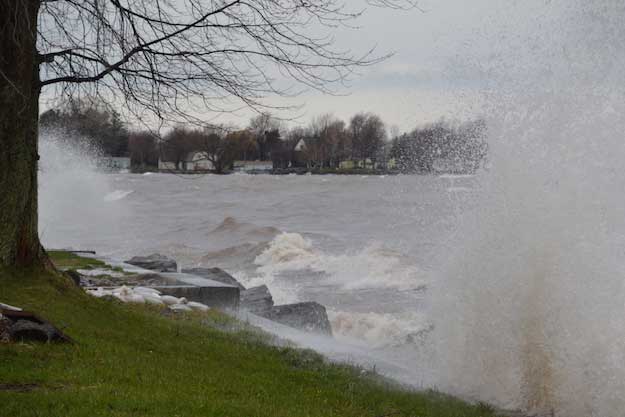IJC expects improved conditions on Lake Ontario with no repeat of 2017, 2019

Photo by Tom Rivers: Waves crash on the shore in the Town of Yates in this photo from April 9 on Fisher Lane.
The International Joint Commission sees Lake Ontario water levels peaking well below the record highs of 2017 and 2019, when there was widespread flooding damage.
The water levels are currently well above average, but conditions are expected to improve with more moderate weather. The IJC’s International Lake Ontario-St. Lawrence River Board also has increased Lake Ontario outflows and help the system recover faster following extreme water level periods, the bi-national commission said ina news release today.
Besides increased outflows, beyond those previously perceived as feasible, there has been help from Mother Nature too, the IJC said.
“It’s worth reiterating that no regulation plan can be designed to address every imaginable and sustained extreme weather event and provide total protection for all water uses throughout the system at all times,” the IJC said. “While the Board is encouraged by current and projected water levels, the Board can’t predict what the weather will bring and encourage shoreline communities to not let their guards down.”
A key factor contributing to lower water levels is that the Ottawa River system has reached a peak earlier than in 2017 and 2019, and its current flow is much lower, the IJC said.
The Board has been able to continue increasing Lake Ontario outflows partly because the Ottawa River has been declining and conditions downstream can now handle additional flow.
These conditions have allowed levels on Lake Ontario to see a much more moderate rise this spring, despite extremely high and sustained inflows from Lake Erie.
All four of the upper Great Lakes are at or above record levels, whereas Lake Ontario is well above average, but still well below record levels.






































































